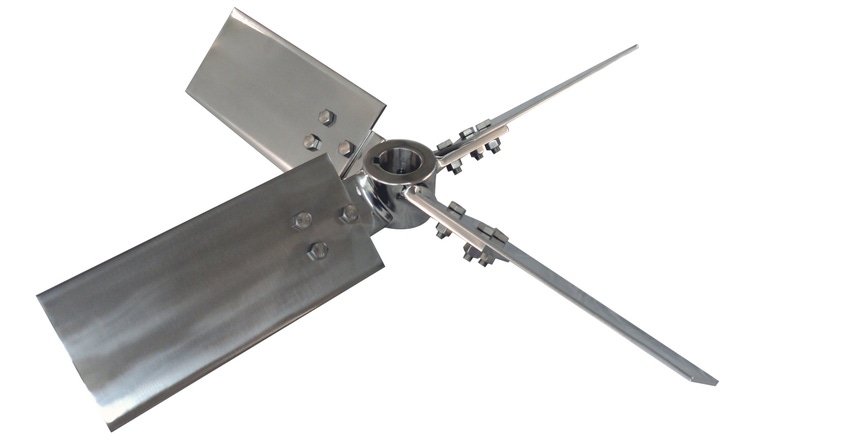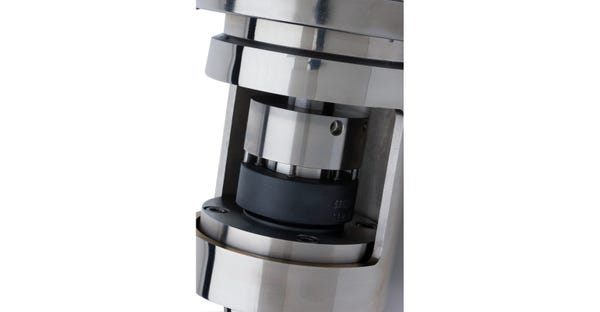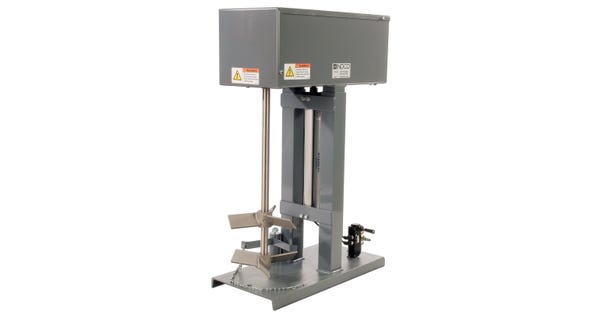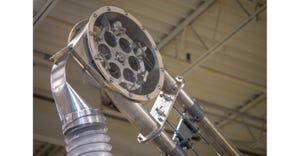Well-cared for heavy-duty mixers can last for years or even decades.
January 14, 2022

Mark Hennis, president, Indco
Heavy-duty industrial mixers are relied upon every day to produce consistent product and process results. Intensities of applications vary widely, but with the right maintenance regimen mixers can last 10-20 years or more. However, when periodic maintenance takes a back seat, premature wear can result, requiring costly repairs and wreaking havoc on production schedules – and the bottom line. To get the maximum return on investment and ensure smooth operation, it is vital that routine maintenance and care be applied to commercial mixer machines.
Routine Cleaning and Maintenance
Industrial mixers should be thoroughly cleaned and visually inspected regularly with frequency depending on usage or per standard operating procedures for clean in place (CIP) and sanitize in place (SIP) requirements if operating in a sanitary environment. Removable impellers or coupled mixer shafts can accumulate debris, excessive wear, corrosion, and even cracks at weld joints. Set screws and anti-rotation keys should be checked for cleanliness and to verify a proper thread fit and assembly. Interior mixing tank surfaces, mixer stands if applicable, and other mechanical system components should be routinely checked to ensure they are clean, serviceable and working to their full ability. Though it can be time consuming, the investment will yield financial savings in the long run.
Motor Evaluation
Electric and pneumatic motors require infrequent intervention but should still receive periodic evaluation. Noise from the motor can be indicative of failing bearings, signaling that it may need replacement in the near future. Dirty air supply, moisture in the lines, and failure to provide lubrication are some of the common causes of premature pneumatic motor failures. A filter-regulator-lubricator (FRL) installed in the plumbing just upstream of the mixer can maximize air motor life and performance.
A noisy gearbox may mean gears are worn and require attention. A gearbox that is hot may indicate an improper oil level or leakage, leading causes of premature gearbox failure.
Gearbox Inspection
The most common signs of gearbox wear can be detected by sight, sound, and feel. Noise is the most obvious sign of gear wear for a gearbox that is still operating. Excessive heat from friction will also be present, especially if the gearbox has not been properly lubricated or it has lost lubrication due to a failure of the reservoir seal. Oil on the exterior of the unit or leaking down the shaft is a clear indicator of a leak. If there is no leak but high heat or noise check the oil reservoir. High friction due to improper oil level or leakage is a leading cause of premature gearbox failure. Both the mixer and gearbox manuals contain detailed information about when and what type of lubrication is needed to keep your gear-driven mixer running smoothly.

The sealing surfaces of mechanical seals are brittle and should be inspected for wear, cracks, or other damage.
Seals
Mixers designed to prevent ingress of contaminants or to hold pressure feature some type of seal mechanism. Two common ones are lip seals and mechanical seals. A lip seal is a simple ring-shaped component with a diameter that fits tightly to the shaft. If the unit has a lip seal inspect to determine if the fit with the shaft is adequate. Over time the seal inside diameter can wear away reducing the fit to the shaft. It is also possible that a lip seal can score the shaft due to friction so inspect the shaft as well. Mechanical seals feature two flat carbon and carbon-silicon faces: one rotating and one stationary that when running together prevent leakage. The sealing surfaces of mechanical seals should be inspected for wear, cracks, or other damage as they are brittle. Increased noise could also signal that the mechanical seals should be rebuilt or replaced, and, like air motors, seal rebuild kits may be available, depending on the seal type.
Don’t Confuse the Purpose
Even the most well-built machines stop working when they are not used as intended. Most industrial mixers fail when used for purposes outside of their design limits. When buying mixers to use for multiple operations always have it sized for the properties of the most demanding application. Supply the manufacturers engineering and customer service teams with pertinent mixing parameters including specific gravity (or weight per gallon), viscosity, and the level of agitation required. When in doubt, always consult with a mixer engineer to ensure the mixer is designed for the mechanical load.
Replace Parts Now, Save Time Later
A heavy-duty mixer is only as powerful as the sum of its parts. Mixing equipment constructed with high-quality materials optimized for trouble-free operation make the need for servicing or parts replacement minimal. However, mixers subjected to high stress and wear over time will eventually need to be addressed. Using original OEM replacement parts, including motors (air or electric), gearboxes, mounting brackets, clamps, bearings, and shafts will keep mixers in top shape.

When properly cared for, industrial mixers can last a long time - often years or decades.
Summary
While the cleaning and maintenance process can seem time-consuming, the time spent making some fixes today will translate to money saved in the long run. Well-cared for heavy-duty mixers can last for years or even decades. Regular inspections and maintenance will keep mixers working at top capacity and keep maintenance budgets in check.
Mark Hennis is president, Indco (New Albany, IN). Since 1975, Indco has designed and manufactured a completed lineup of mixers for batch sizes up to 50,000 gal. For more information, call 800-851-1049, email [email protected], or visit www.indco.com.
You May Also Like


